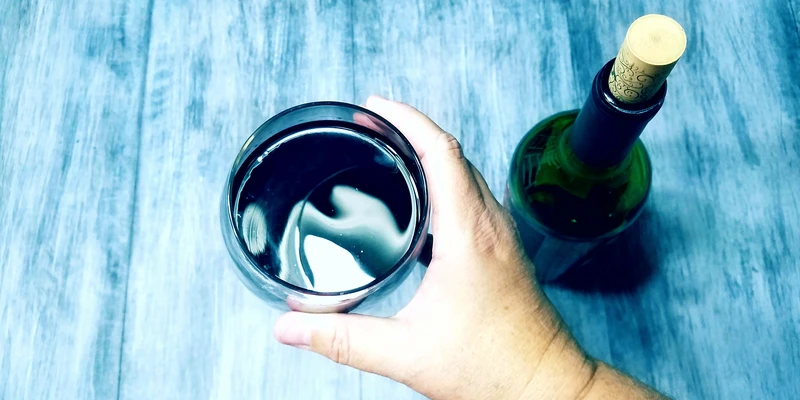
Dra. Emma Collins
Clinical Psychiatrist & Medical Detox Specialist
Medications for alcohol withdrawal help manage the physical effects that come when alcohol use suddenly stops. These treatments are used to reduce symptoms and other medical concerns that can appear during this time. They are often part of supervised care to prevent serious complications.
Learning how these medications work can give you a better understanding of what to expect during the early stages of stopping alcohol intake.
Understanding Alcohol Withdrawal
When you stop drinking alcohol after regular or heavy use, your body begins to react to its absence. This process is known as alcohol withdrawal. It occurs because your central nervous system has adapted to the effects of alcohol over time. Without it, your brain becomes overactive, which leads to withdrawal symptoms.
Understanding this process is important, as it helps you recognise what your body is going through and why medical and professional support may be needed.
What are Alcohol Withdrawal Symptoms?
Symptoms of alcohol withdrawal appear when your body reacts to the sudden absence of alcohol. The severity of withdrawal symptoms depends on the amount of alcohol use, which can range from mild to life-threatening.
Common Withdrawal Symptoms
You may experience alcohol withdrawal symptoms such as sweating, shaking, headache, nausea, anxiety, irritability, or trouble sleeping. These typically begin within hours after your last drink and may last for several days.
Severe Complications
In some cases, withdrawal may lead to dangerous complications like seizure, hallucinations, or delirium tremens. These severe symptoms require urgent medical care and can become life-threatening without proper alcohol withdrawal treatment.

What are the Medications for Alcohol Withdrawal?
Medications are often needed to reduce the risks of alcohol withdrawal and help your body stabilize during the early stages of recovery. These medications may work by easing overactivity in your brain and nervous system, which manage both physical and psychological symptoms. The goal is to make withdrawals safer and more manageable, especially if you are at risk for complications.
Benzodiazepines
Benzodiazepines are typically the first-line treatment for managing alcohol withdrawal. These medications may work by calming the central nervous system, which becomes overstimulated when alcohol use suddenly stops. By doing so, they help reduce symptoms such as anxiety, agitation, and the risk of seizure.
Diazepam, lorazepam, and chlordiazepoxide are commonly used in both inpatient and outpatient settings. The dosage and duration of treatment are carefully adjusted based on your response to the medication and the intensity of your symptoms. This class of drugs is highly effective in preventing severe withdrawal complications, typically in the first 72 hours after your last drink.
Anticonvulsants
Anticonvulsant medications may be used in place of or alongside benzodiazepines, depending on your medical history and the setting of your care. These drugs are designed to stabilize brain activity and lower the likelihood of seizure, which is a serious risk during alcohol withdrawal.
Medications such as carbamazepine and valproic acid are sometimes chosen if you have a lower risk of severe withdrawal or you cannot take benzodiazepines. Anticonvulsants may also be preferred in outpatient care where frequent monitoring is available.
Adjunctive Medications
In addition to primary medications, doctors may use adjunctive treatments to help you cope with specific symptoms. For instance, beta-blockers like propranolol may be prescribed to manage increased heart rate or high blood pressure, while antipsychotic medications can help if you experience severe symptoms such as agitation or hallucinations.
These medications are not used on their own for withdrawal but are added to support comfort and safety when symptoms become harder to control. By addressing these targeted concerns, adjunctive medications can reduce distress and help your body adjust more smoothly during detoxification.
Long-Term Supports
After the acute withdrawal phase has passed, certain medications may be introduced to support long-term recovery. These are not used to treat immediate withdrawal symptoms but help reduce the risk of returning to alcohol use.
For instance, naltrexone works by blocking the brain’s reward response to alcohol, which can make drinking alcohol less appealing, while acamprosate reduces cravings, and disulfiram creates an unpleasant reaction if alcohol is consumed and acts as a strong deterrent.
These medications are usually part of a broader addiction treatment plan that includes therapy, support groups, and ongoing medical care to help you maintain sobriety over time.
Is there a Risk with Alcohol Withdrawal Medications?
When using alcohol withdrawal medications, it’s important to consider the potential risks involved. These medications, while effective, can sometimes lead to side effects such as drowsiness, dizziness, or coordination problems.
In certain cases, longer-term use of benzodiazepines may result in dependence. Interactions with other drugs or underlying health conditions may also complicate treatment. Careful medical supervision helps reduce these risks and ensures proper use throughout the withdrawal management process.

Treatment for Alcohol Withdrawal Syndrome
Treatment for alcohol withdrawal syndrome focuses on managing symptoms, preventing complications, and supporting recovery. It often includes medical detox and structured care.
Alcohol Detox: Process and Safety Measures
Alcohol detox is the first step in treating alcohol withdrawal syndrome. During this process, your body clears alcohol from your system while medical staff monitor your symptoms of withdrawal closely. You may receive medications to reduce discomfort, lower the risk of seizure, and maintain stable vital signs. In a supervised setting, professionals can respond quickly to any complications that arise.
Safety measures, such as hydration, nutritional support, and rest, are also part of the care plan. Detox usually lasts several days, but the exact duration depends on your history of alcohol abuse and overall health.
Residential Treatment
After detox, residential treatment provides a supportive environment where you can continue in recovery. In this level of care, you live onsite while receiving medical care, psychological support, and daily therapy. The goal is to help you understand the roots of your alcohol use disorder, build healthier coping skills, and reduce the risk of relapse.
Residential care also offers structure and access to trained professionals who’ll guide your recovery. This level of support can be helpful if you have experienced severe withdrawal symptoms or have other health concerns, such as co-occurring conditions that need attention.
Long-Term Management and Support
Long-term management of alcohol withdrawal involves ongoing care to prevent relapse and maintain sobriety. It focuses on continued support and therapeutic strategies.
Therapies and Support Groups
Therapies such as cognitive-behavioral therapy (CBT) can help you address underlying psychological issues and develop healthier coping mechanisms, and support groups such as Alcoholics Anonymous (AA) provide a sense of community and shared experience.
Both therapies and support groups play an important role in reinforcing the progress made during detox and residential treatment. They offer an outlet for expression, guidance, and mutual encouragement, which are essential in preventing relapse.
Developing Personalized Treatment Plans
A personalized treatment plan is tailored to your specific needs and addresses your unique challenges and recovery goals. It may involve a combination of medical care, therapy, lifestyle changes, and support systems that best suit your situation.
Regular check-ins with your healthcare team allow for adjustments to the plan as you progress. A personalized approach helps you stay on track, adapt to changes in your life, and manage triggers that could lead to relapse.

Get Help Managing Withdrawal at Twilight Recovery
Withdrawal can feel like too much to face on your own. At Twilight Recovery, you’ll be supported by people who understand what this stage feels like. With medical care and guidance, we’re here to help you get through it safely, with compassion and consistent support from the start.
Frequently Asked Questions
What are the safest treatment options for managing alcohol withdrawal symptoms?
Medically supervised detox with prescribed medications, such as benzodiazepines or anticonvulsants, remains the safest approach to reduce withdrawal symptoms and prevent serious complications during alcohol withdrawal.
How do benzodiazepines work in the treatment of alcohol withdrawal?
Benzodiazepines calm brain activity by enhancing gamma-aminobutyric acid (GABA) effects, which reduce anxiety, agitation, and the risk of seizure that may occur during alcohol withdrawal.
Is there medication for severe alcohol withdrawal?
Yes, severe withdrawal cases may be treated with higher-dose benzodiazepines, along with supportive medications for seizure, hallucinations, or agitation, under continuous medical monitoring.
Are there non-benzodiazepine medications recommended to manage withdrawal symptoms?
Anticonvulsants, beta-blockers, and certain antipsychotics may be used alongside or instead of benzodiazepines, depending on your symptoms and history of alcohol use.
What are the potential risks and side effects of using medications to treat alcohol withdrawal?
These may include sedation, dizziness, confusion, or medication dependence when it's not used under supervision. Interactions with other drugs also need careful consideration.
How do healthcare providers determine the appropriate medication and dosage for treating alcohol withdrawal?
They assess your drinking history, symptom severity, physical health, and risk of complications to guide the safest and most effective alcohol withdrawal treatment plan.







